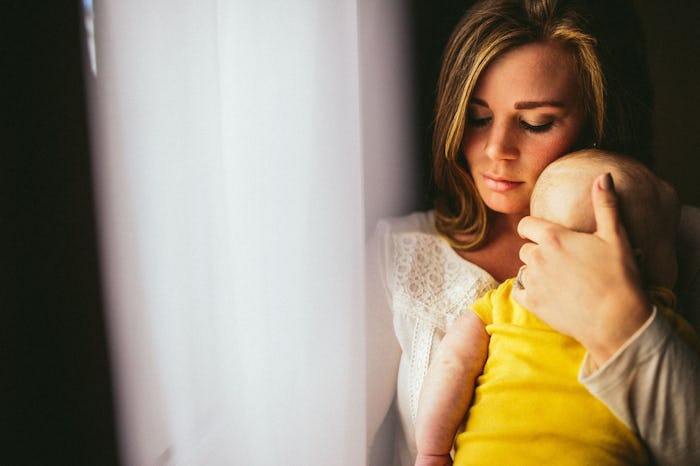Life
Is Postpartum Anxiety Hereditary? Here's Why Knowing Your Family History Is So Important
Although there are many different factors that can put women at risk for postpartum anxiety and other disorders, one of the most commonly asked questions from new moms and therapists alike boils down to your family history. So is postpartum anxiety hereditary? It's a vital question to ask, especially if you suspect that you're suffering from something that affects so many women.
But first, a little bit about the disorder itself. According to an article from the Huffington Post, it's thought that postpartum anxiety is even more common than postpartum depression. But not as many women know about it, meaning it often goes undiagnosed. According to the Journal of Affective Disorders, about 15 percent of pregnant and postpartum women are affected by postpartum anxiety.
Anxiety isn't the same thing as depression. In fact, according to Parents, postpartum anxiety is an overwhelming sense of worry, restlessness, moodiness, and symptoms like increased heart rate, rapid breathing, inability to sleep, or obsessive worrisome thoughts about your baby, yourself, or your family. The same article noted that many don't even realize they're suffering from it, which is why it's often called the "hidden disorder."
Although a certain degree of worrying is normal as a new parent — after all, it's a huge adjustment to make — the difference between normal worry and anxiety is when your thoughts become obsessive or irrational, such as worrying that the baby will get hurt if you're not holding them.
There are lots of factors that put postpartum, and even pregnant, women at risk for developing anxiety, and yes, your family history is among those risks. According to Postpartum Support International (PSI), personal or family history of any anxiety disorder increases the likelihood that you'll experience anxiety postpartum. Make sure to ask your mother, and both paternal and maternal grandmothers if they've experienced anything similar to postpartum anxiety to give you a better idea of your own likelihood.
The silver lining in the anxiety cloud, however, is that postpartum anxiety is temporary and treatable, meaning that with the proper counseling, treatment, and time, your thoughts and worries can (and should) return to normal. No woman should have to suffer alone, so if you suspect yourself of having postpartum anxiety or any other disorder, don't leave it in the dark. Seek out medical attention ASAP. Because there is no shame in asking for help.
